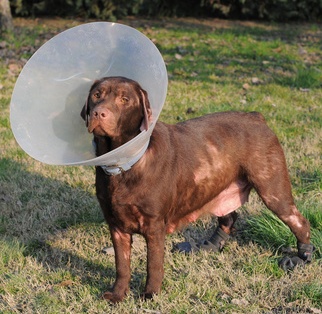List of Parasites In Dogs - Mange, Fleas, Ticks & Ear Mites
Parasites in dogs are a very common problem that many dog owners will see and they frequently lead on to skin damage and loss of hair.
Fleas, Mange and Ticks are the most common parasites in dogs but there are others and we will look at each of them in turn. Please read on or, for further information on how parasites can affect dogs, see our page onDogs Skin Problems.
Fleas
As dog owners many of us will be familiar with these as dogs can be attacked by all the different types and strains of these parasites. Fleas are easily visible to the naked eye and you should make a point of examining your dogs coat regularly.

Fleas are easily treated with the wide range of spot on products that all pet stores carry. One thing you need to be aware of is that because fleas will lay hundreds of eggs in your dogs coat some may fall on carpets and on bedding which will also need to be treated.
Ticks
Another common parasite in dogs, ticks will suck the blood and cause irritation to the skin. Swollen and reddened areas of skin are telltale signs of ticks and they need to be treated immediately as they can carry Lyme disease.
Ticks will often 'hop a ride' on your dog during walks in the countryside or on farmland so it is important to always brush your dog when returning from a country walk. Ask your pet store if they carry 'tick hooks' and keep one in your grooming kit. Ticks are easily removed from your dogs skin with these hooks.
Mange
Mange can be horrible if not treated and anyone who has worked in an animal rescue centre will have seem some awful instances of neglected dogs being ravaged with mange. Happily, as responsible pet owners, we will ensure that our dogs are quickly treated should they suffer from mange.
Mange mites live in and on the dogs skin and symptoms include a thickening of the skin with severe itchiness. Spot on treatments will easily resolve the issues though the harsher condition known as demodetic mange is harder to treat and will require medicinal baths.
Ear Mites
Parasites known as Otodectes, or ear mites to you and I, can cause an itchy irritation in a dogs ears and can also cause the ears to ooze a smelly, brown discharge. Not pleasant for the dog obviously so if you notice a discharge in the dogs ear than consult your vet immediately.
Related Articles
Parasites In Dogs And Other Skin Problems